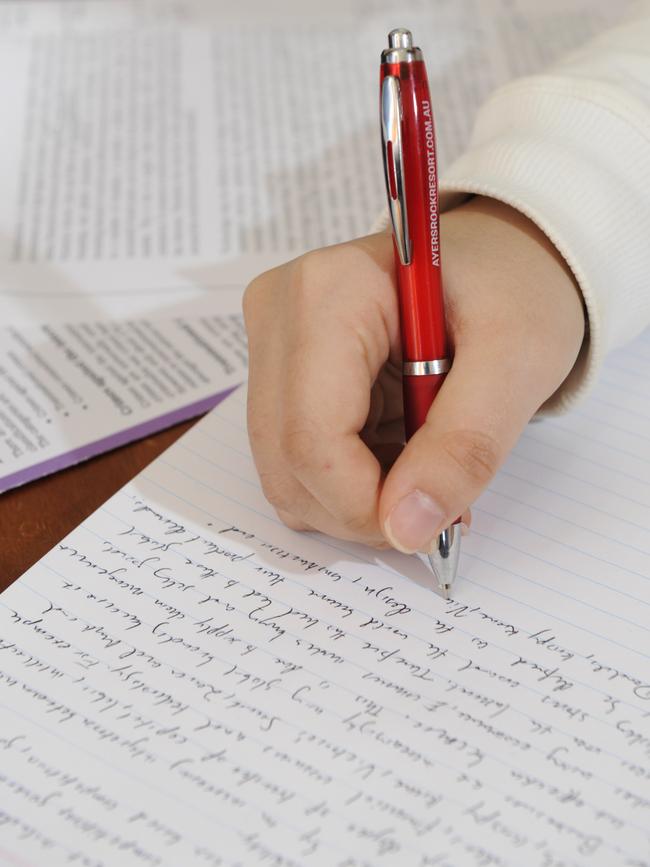HSC 2020: English students lose marks for cultural, gender stereotypes
Traumatised war heroes and loving grandmothers - these are some of the so-called “stereotypes” which students were marked down for in last year’s HSC.
NSW
Don't miss out on the headlines from NSW. Followed categories will be added to My News.
HSC students were marked down in their English exams and assessments because their work did not conform to teachers’ social values around cultural appropriation and gender stereotyping.
Education experts say the exams have been hijacked by “activist” markers unfairly applying their own progressive judgments about what is culturally appropriate in students’ work.
Feedback from the NSW Education Standards Authority (NESA) released this week said students could improve by “considering appropriate concepts that have cultural sensitivity and are relevant to current times and avoiding cultural appropriations that rely on familiar or offensive stereotypes”.
That is despite the student and school remaining anonymous to the marker.
In the English Advanced course’s creative writing exercise, markers said there were too many typecast characters.
“(Avoid) gender stereotyping, such as grandfathers as returned war veterans who were heroes hiding their trauma, or grandmothers as the family matriarch sharing cultural values and recipes,” it said.
But Centre for Independent Studies education researcher Glenn Fahey said students should not be penalised for failing to second guess arbitrary rules “activist” markers had applied about gender stereotypes.

“Parents and students should be outraged. It appears some HSC markers don’t take their commitment to independence seriously. That means students don’t get a fair go,” he said. “Students effectively need to second guess how they answer a question by predicting what the marker might consider culturally appropriate.
“Frankly, when markers apply their own values to assessment, this undermines what matters most in education — that students’ work is judged on merit, and merit alone.
“Should students with substandard responses get a higher grade because they have the ‘right’ social values?
“It’s no longer about appreciating a range of values, but that all students fall in line with a culturally conformist, progressive interpretation of the world that is intolerant of a certain set of social values.”
Australian Tutoring Association president Mohan Dhall said teachers should not assume a student’s cultural background or their work was not genuine.
“What we don’t know is if one of them has actually had that experience and they’re somehow being penalised for a genuine experience,” he said.
Australian Catholic University education expert Kevin Donnelly said it was disappointing students had to conform ideologically to get a good mark.
“If students ... write essays which are contrary to what the new orthodoxy is they’re penalised,” he said. “Things like cultural appropriation and gender stereotyping is the language of cancel culture. As someone who taught English for 18 years it is very disappointing.”
A NESA spokeswoman said markers’ comments were just a guide for students to improve and said there were no penalties for perceived cultural appropriation.
More Coverage
Originally published as HSC 2020: English students lose marks for cultural, gender stereotypes




